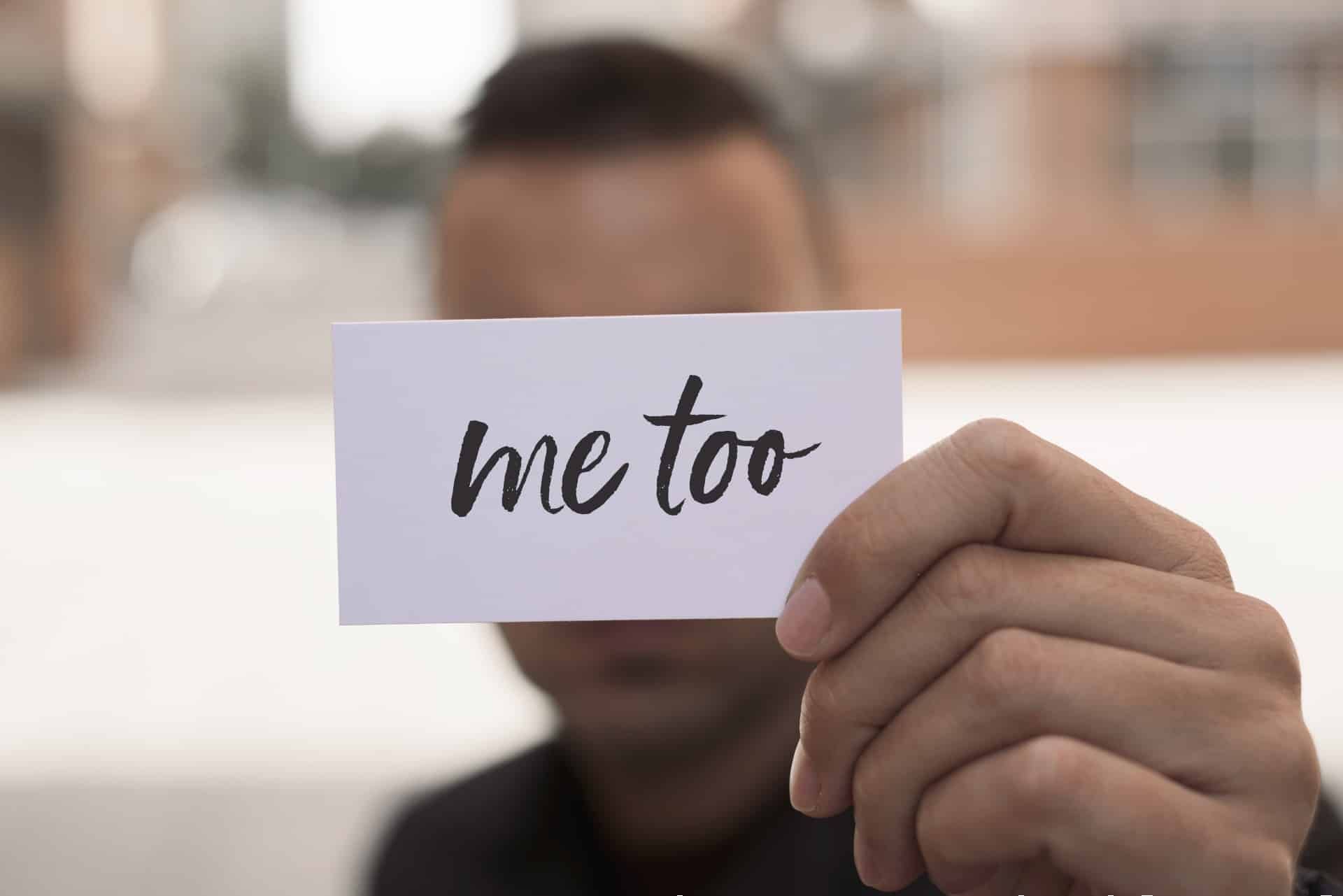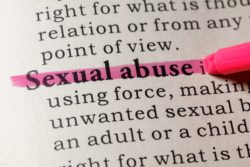
After the #MeToo movement inspired people to share their stories of sexual abuse and assault, patterns of alleged complicity of institutions around the country began to arise. In recent years, male former University of Michigan students have come forward saying that they were sexually abused by a doctor at U of M.
The doctor in question died in 2008. However, the late Dr. Robert Anderson allegedly victimized many male students within the University of Michigan sports teams during his time at the university, according to NBC News. Anderson was a former director of the University Health Service. He also served as the top physician for the U of M football teams.
An investigation was launched into Anderson after a former U of M wrestler came forward with allegations of sexual abuse against the late doctor. The former wrestler, Tad DeLuca, reported alleged abuse by Anderson back in 1975. At the time, his concerns were dismissed and even scorned, resulting in being kicked off the wrestling team, he said.
In 2018, DeLuca came forward with a second letter—this time, successfully sparking a police investigation.
“I will not be ignored again,” DeLuca reportedly said. DeLuca says he was inspired to write his second letter by the female gymnasts at Michigan State University who had reported abuse by the sports doctor Larry Nassar.
DeLuca is one of nearly a dozen male former U of M students who have come forward alleging abuse by Anderson.
The University of Michigan now faces allegations that the school did not do enough to protect students from the predatory doctor, despite having long-standing knowledge of his misconduct. Up to 70 students have alleged abuse at his hands, a number of which filed lawsuits.
Now, institutions like the University of Michigan are having to grapple with their policies around sexual misconduct and assault. This may involve reexamining how reporting occurs, what protections are in place for community members, or how misconduct may be penalized.
What is Sexual Misconduct?
Sexual misconduct is a broad term used to describe a range of inappropriate sexual behavior. Unlike sexual assault, sexual misconduct is not a legal term in most states, says the Rape, Abuse and Incest National Network (RAINN).
Sexual misconduct can include sexual abuse, attempted rape, sexual harassment, or unwanted sexual touching. It can be defined differently by various organizations. For instance, it can include sexual relationships between coworkers, if these relationships are prohibited. Such relationships could be considered misconduct even if they are consensual.
The University of Michigan says that sexual misconduct can include “sexual assault, sexual exploitation, sexual or gender-based harassment, sex and/or gender-based stalking, intimate partner violence, and sex and gender-based discrimination.” The university’s website goes on to explain that “behavior that creates a hostile environment or is perceived to impact a person’s employment, academic standing, or participation in university programs could be considered sexual misconduct,” as well.
What Sexual Misconduct Lawsuits Have Been Filed?
Large organizations around the country have faced thousands of sexual misconduct lawsuits in recent years. These organizations include universities like the University of Michigan and the University of Southern California. Formal organizations like the Catholic Church and the Boy Scouts of America have also come under fire.
All of the organizations mentioned have received criticism that they did not handle cases of abuse well. In some cases, lawsuits have claimed that these organizations failed to report abuse by those in power, and hid patterns of abuse. Allegedly, many well-known organizations have made habits of putting their reputation ahead of the safety of community members.
Though the University of Michigan’s website notes the importance of education and training around sexual misconduct, and stresses the importance of reporting instances of sexual misconduct, recent lawsuits have criticized the university for allegedly failing to live up to these ideals – such as in the case of Dr. Anderson.
What is Sexual Misconduct Law?
Sexual misconduct laws vary from state to state. Largely, sexual misconduct is a broad, non-legal term used to describe a range of inappropriate sexual behaviors. Vox explains that this term is frequently used in media reports, like those of Harvey Weinstein, precisely because it is non-legal.
Additionally, the relationship of the term “sexual misconduct” to the law is complicated by the fact that certain acts are illegal in some states but legal in others. Vox provides the example of groping — it is illegal in some states like Minnesota, but is legal in other states. This means that this form of what could be considered sexual misconduct may or may not be legal. In Minnesota, groping is considered sexual battery, a form of sexual assault.
New York considers sexual misconduct to be its own criminal charge, which Vox says is a person having sex “with another person without consent, or ‘engages in sexual conduct with an animal or a dead human body.’”
Sexual Misconduct Policy at the University of Michigan

Currently, the University of Michigan has established certain prohibited conduct, including “sexual assault, sexual exploitation, sexual harassment, gender-based harassment, stalking, intimate partner violence, sex and gender-based discrimination, retaliation, and violation of protective measures.”
The university’s sexual assault policy also emphasizes that consent is essential for sexual activity, noting that force and incapacitation are not valid ways of gaining consent for sexual activity.
Many faculty and staff members at the university are designated reporters, meaning that they must share information with the university about any prohibited conduct. The university requires these instances to be reported within 180 calendar days, so that action can be taken in a timely manner.
If a member of the university community is found to have committed sexual misconduct, the university can take a range of protective measures, including implementing no contact directives, limiting access to university facilities or activities, interim suspension, or others.
What Sexual Misconduct Charges Have Resulted in Settlements?
Cosmopolitan explains that a number of high-profile sexual misconduct lawsuits have ended in settlements. While no verdict was reached, these settlements can provide significant compensation to victims. According to Cosmopolitan, Bill O’Reilly agreed in 2017 to pay a $32 million settlement to end sexual harassment claims. Harvey Weinstein has reportedly settled with at least eight alleged victims over sexual misconduct.
In the education field, universities have ended sexual misconduct claims with settlements as well. The New York Times reported that the University of Southern California agreed to pay $215M to a group of victims claiming that a gynecologist abused patients for years during his employment at USC, with little intervention from the university.
Should You File a Sexual Misconduct Lawsuit?
Filing a sexual misconduct lawsuit can be a powerful way to hold an institution accountable for allegedly mishandling instances of sexual assault. It can also be a way for victims to receive compensation for the injury they suffered. Though no amount of money can erase the pain and suffering caused by sexual misconduct, it can help offset the possible costs associated with handling physical, emotional, or financial injury that can be associated with sexual misconduct or assault.
In schools, workplaces, religious organizations, and other places, sexual misconduct may occur. Filing a lawsuit can help shed light on a pervasive issue, and can help a victim find justice after misconduct occurs. More broadly, these lawsuits can also help shed light on the overwhelming problem of sexual misconduct in a range of industries and institutions
Join a Free Dr. Robert Anderson Sex Abuse Lawsuit Investigation
If you were sexually assaulted by Dr. Robert Anderson at the University of Michigan, you may have a legal claim. Attorneys are currently looking for individuals who were sexually abused by the university doctor during a medical exam to help victims get the justice they deserve.
See if you qualify by filling out the free form on this page.
This article is not legal advice. It is presented
for informational purposes only.
ATTORNEY ADVERTISING
Top Class Actions is a Proud Member of the American Bar Association
LEGAL INFORMATION IS NOT LEGAL ADVICE
Top Class Actions Legal Statement
©2008 – 2026 Top Class Actions® LLC
Various Trademarks held by their respective owners
This website is not intended for viewing or usage by European Union citizens.
Get Help – It’s Free
Join a Free Dr. Robert Anderson Sex Abuse Lawsuit Investigation
If you qualify, an attorney will contact you to discuss the details of your potential case at no charge to you.
PLEASE NOTE: If you want to participate in this investigation, it is imperative that you reply to the law firm if they call or email you. Failing to do so may result in you not getting signed up as a client or getting you dropped as a client.
E-mail any problems with this form to:
[email protected].
Oops! We could not locate your form.













One thought on What You Need to Know About University of Michigan Sexual Misconduct Lawsuits